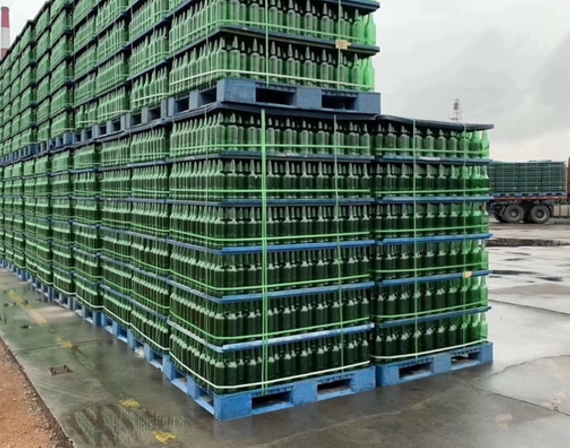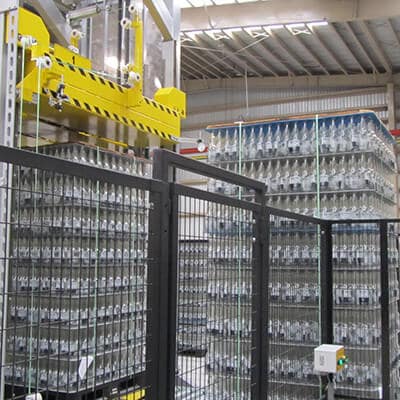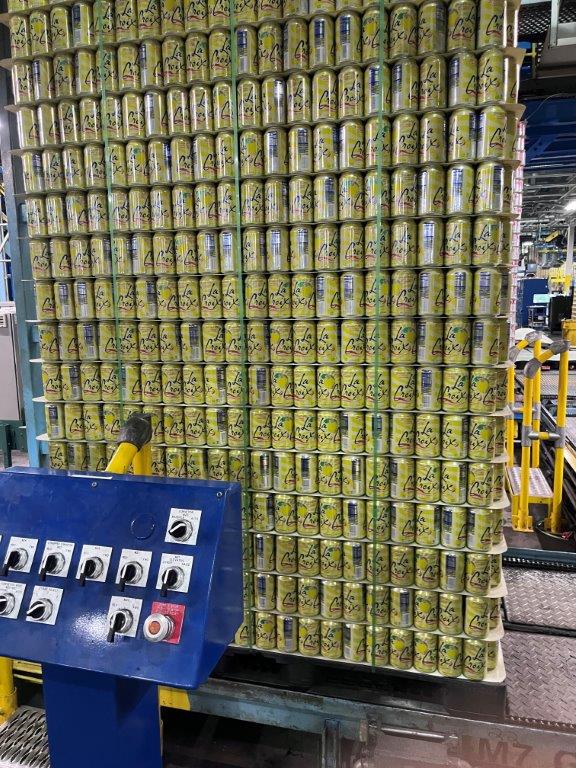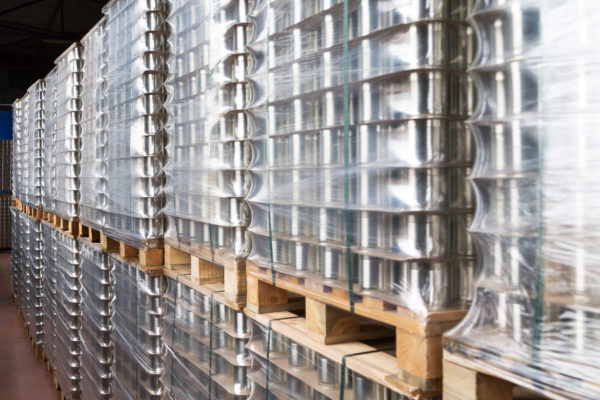
How PET Straps Are Used in Palletizing in the Bottle & Can Industry
In the fast-paced world of beverage manufacturing, where millions of bottles and cans move from production lines to store shelves daily, packaging integrity is critical. From carbonated soft drinks to water, juice, beer, and canned foods, the challenge lies not only in filling the containers but also in safely securing and transporting them.
That’s where PET strapping plays a vital role. Strong, flexible, and cost-effective, Polyester (PET) straps are the go-to solution for palletizing bottles and cans across the beverage and packaging industry.
What Are PET Straps?
PET straps are high-tensile polyester bands designed to hold goods tightly together on pallets. Made from polyethylene terephthalate, these straps combine the strength of steel with the flexibility and safety of plastic, making them ideal for securing lightweight yet high-volume products like bottles and cans.

The Role of PET Straps in the Bottle & Can Industry
PET strapping is an essential component of the palletizing process, which involves stacking filled containers on pallets for easy storage and transportation. Here’s how PET straps are used:
1. Stabilizing Pallet Loads
Bottles and cans are typically shrink-wrapped in trays or grouped in packs before being stacked on pallets. PET straps are then applied vertically or horizontally to hold the entire pallet load together, preventing shifting, tilting, or collapsing during handling and transit.
2. Withstanding Load Pressure and Movement
Pallets of beverages often face long journeys, temperature changes, and vibrations. PET strapping offers excellent tension retention and shock absorption, ensuring that the packaging remains secure even under challenging logistics conditions.
3. Compatible With High-Speed Production Lines
Modern beverage facilities rely on automation. PET straps are fully compatible with automatic strapping machines, allowing high-speed production without manual intervention — ideal for companies operating on a 24/7 schedule.
4. Non-Damaging and Safe for Packaging
Glass bottles and aluminum cans are easily scratched or dented. PET straps are gentle on surfaces and don’t rust or cut into packaging like steel straps. They also eliminate injury risk for workers, thanks to smooth edges and safer handling.
5. Weather and Moisture Resistance
PET straps are resistant to humidity, UV rays, and temperature fluctuations, making them ideal for both indoor and outdoor warehousing — especially when products are exported internationally or stored temporarily in open areas.

Advantages of PET Straps for Bottling and Canning
- Strong & Reliable: Holds heavy or tall pallet loads without losing tension.
- Safe to Use: No sharp edges, reducing injury risks.
- Non-Corrosive: No rust marks or stains on packaging.
- Cost-Efficient: Lower material costs and reduced product damage.
- Sustainable: 100% recyclable and often made from recycled materials.
- Machine-Friendly: Works seamlessly with automatic strapping systems.

Real-World Example
Large-scale beverage manufacturers — including water bottlers and soda brands — use PET strapping to secure pallets of 12-packs, 24-packs, and multi-layered bottle arrangements. Once the load is wrapped and strapped, it can be forklifted, stored, or shipped without risk of collapse or toppling, even during high-speed distribution.
Conclusion
In an industry where efficiency, speed, and safety are paramount, PET strapping has become the backbone of secure palletizing in the bottle and can sector. It offers the perfect balance of strength, safety, and sustainability — making it the smarter alternative to steel and polypropylene strapping.
Whether you're shipping bottled water across the country or stacking cans for warehouse storage, PET straps ensure your product stays secure from production to point of sale.
